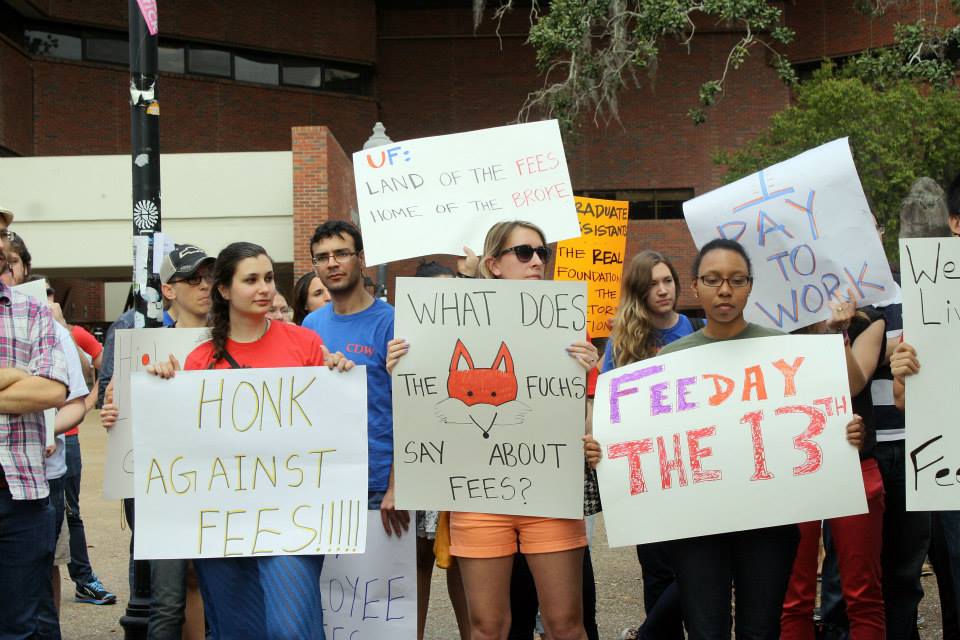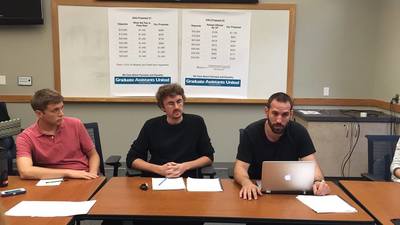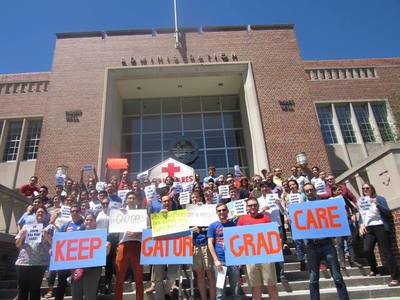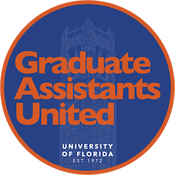Collective BargainingCollective bargaining is the process by which labor unions, representing workers, negotiate with employers to reach a contract on terms of employment. These terms include salary, health care, benefits, and workplace safety.
According to Article II, Section 8 of the Graduate Assistants United Constitution, GAU’s objective is “to promote economic security and humane working conditions within the University.” GAU accomplishes this through negotiating our Collective Bargaining Agreement (CBA), or contract, with the University of Florida. Our contract governs the terms of your employment as a graduate employee (graduate, research, or teaching assistant). We negotiate our entire contract every third year (for example, 2020, 2023, and so on). During the other years, we negotiate selected articles, such as those dealing with stipends. Bargaining sessions usually take place during the summer. The Bargaining ProcessThe collective bargaining process begins either when a disagreement arises between the Union and University, or when either party indicates they would like to renegotiate a provision of the collective bargaining agreement. The first stage of the process begins when one party notifies the other of their intention to negotiate. At this time, each party chooses a delegate to represent them during the negotiations. For GAU, this delegate is the Chair of the Bargaining Committee, working with the GAU Co-Presidents.
Next, the parties meet for a bargaining session. During the first session, each party specifies their position and the party that initiated the bargaining process proposes an offer to solve the issue(s) in dispute. Following this proposal, the two parties continue to exchange offers. This represents the bargaining process, in which both parties examine and discuss potential options to reach an agreement. The Bargaining process involves continuous preparation by the GAU bargaining team, and during negotiations, United Faculty of Florida – our partner union – assists and provides advice on contract negotiations, legal questions, and contract language. The bargaining process continues for up to 90 days, unless both parties agree to an extended deadline. If the parties reach an agreement on the issue(s) in dispute, a tentative agreement is reached. This agreement is subject to ratification by all graduate employees. If it receives a majority vote, it is officially ratified and becomes part of the collective bargaining agreement. It is now a binding contract between the Union and University. If an agreement cannot be reached between the parties, or if they do not both agree to extend the 90 day window, an impasse – deadlock – is declared and the bargaining process moves to arbitration. |
Getting InvolvedIn preparation for bargaining, GAU holds regular bargaining training sessions, which are open to all graduate employees. Training sessions include discussing proposals for upcoming negotiations.
Bargaining Goals: Continue to advocate for higher minimum stipends, more comprehensive health care packages, and an end to non-tuition student fees for graduate employees. Bargaining SessionsYou can check out our past bargaining sessions on YouTube!
|
|
Connect with GAU
organizing@ufgau.org Mailing Address PO Box 112014 Gainesville, Florida 32611 Physical Address Yon Hall 224 1908 Stadium Road Gainesville, Florida 32611 Office Hours View Schedule |
Follow GAU
|
Copyright © 2002-21 Graduate Assistants United at the University of Florida. All rights reserved. Affiliated with United Faculty of Florida, Florida Education Association, National Education Association, American Federation of Teachers, and AFL-CIO.





